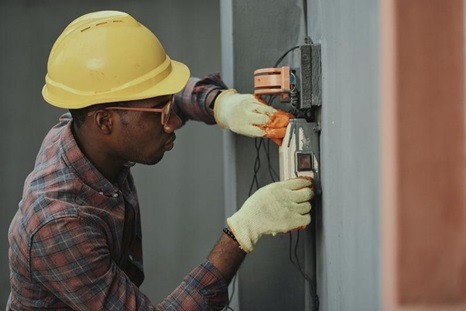If you’re an electrician, you have probably chosen this line of career because electricity excites you. There’s something about this powerful form of energy and the skills we need to put it to good use that makes this job challenging even for the most seasoned professionals out there.
However, one cannot overlook how dangerous dealing with electricity can be. The Electrical Safety Foundation International (ESFI) reported 166 fatal electrical injuries in 2019, a 21% increase compared with 2018. These numbers can only climb considering the rising demand for electricity in North America.
It’s easy to address these injuries as caused by negligence, but the truth is that accidents, even those involving fatal injuries, can happen to anyone. That’s why an electrician’s training puts so much emphasis on safety measures. In turn, there’s always a high demand for the best safety gear on the market.
So why is electricity so dangerous? For starters, one wrong move could easily cause a fire or even electrocution. Second, mishandling electricity can damage power cables or infrastructure, thus causing a blackout that can last for days. And that’s without mentioning collateral damage caused to birds, trees, houses, and the economy in case of a blackout.
To avoid carrying around too much gear (it can be too heavy if you’re trying to climb a ladder or a tree), trained electricians normally have a tool belt that makes it easier for them to reach out for their tools if needed.
However, the inside of the tool belt looks different for every electrician. Here are a few tips on assembling your tools and remaining best prepared in case of an emergency. And here’s the link to buy electrical tape online with unmatched quality.
Check if you have all the tools needed.
A trained electrician always needs:
- Screwdrivers.
- Voltage meter.
- Small screwdrivers.
- Adjustable wrenches.
- Folding box knife.
- Tape measure
- Electrical apprentice license.
- Hammer.
- LED flashlight.
- Sharpie pens.
- Locking storage boxes.
- Wire strippers.
- Wire nut tightener.
- Extra wire.
- Voltage detector with LED.
- Gloves.
- Safety sunglasses.
- Sun hat with neck protection.
- Spray on sunblock.
- Electrical tape.
Before getting to the job site, make sure you have these on you. If you get there and one or more vital tools are missing, it’s best to go back to the van and reschedule the job, which will cost you a day’s work.
Isolate before live testing wires.
Before working on electrical installations, you need to ensure that they are adequately isolated by turning off all appliances connected to them. To do this, use an isolating switch that cuts off power for safety reasons. They can be expensive, but it is well worth getting one as it could save your life.
If the switch does not work, check the installations with a voltage reader to determine if the wires are currently flowing. Using your tester for this type of check will give you the confidence to carry on with your work.
Wear the right gear.
The next step is to wear leather gloves to keep you safe around electricity equipment. Make sure you also wear protective eye gear just in case there are falling pieces and debris. These can damage your eyes if you are not prepared. You should also put on completely dry clothes and rubber shoes to avoid becoming a live circuit yourself.
Don’t attempt any work without checking cables first.
When working on brand new or old electrical devices, it is always advisable that you unplug them before doing anything like testing, adjusting, or repairing them. Otherwise, you risk endangering your life as well as those of others. Also, make sure the power is cut off before attempting to wire anything, as this will ensure that all wiring is done properly.
Do not work while it is raining.
Water and electricity are not friends, so why should you sit in the rain while doing wiring or electrical repairs? Professional electricians always make sure that it’s dry and sunny before they get to work.
Use tools with insulated handles.
All quality pieces of equipment come with insulation on their handles. This prevents you from getting shocked should something go wrong such as when a connection fails. You can still use non-insulated handles, but only if you know what you are doing. Otherwise, the risk may be too high for you even to give it a try.
Takeaway
Taking care of yourself as an electrician is vital. Even more, it’s a matter of life and death. Whenever you are working in the field, ensure that you check everything we’ve mentioned in advance and consult other trained electricians if you’re unsure about the working conditions.

